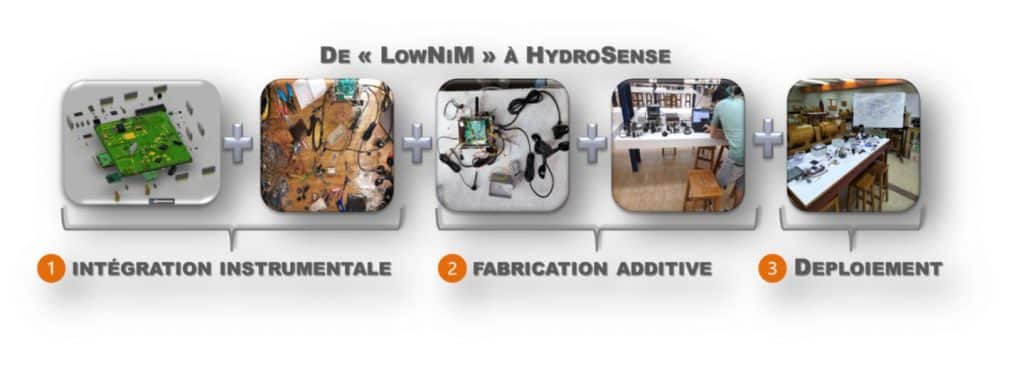CESH
Hydrological research and management of aquatic systems is the first pillar of policies to protect and restore surface water and groundwater resources in catchment areas. This management and development unit integrates human and environmental dynamics. Agricultural, industrial and urban development affect the capacity of these catchments to regenerate water and contribute to water shortages. The precise identification of pollutant sources in space and time, and their diffusion patterns on a catchment scale, requires a considerable increase in the number of observation points. The major observatories and institutional systems (such as the OSR, ZA and OHM) have very high-precision measuring stations. This quality of measurement comes at a high cost (a station can cost several tens of thousands of euros) and has a limited degree of flexibility. We are far from being able to measure key variables on fine scales. This is even more dramatically true in the southern Mediterranean countries, which have no monitoring facilities at all and where expensive monitoring stations are out of the reach of the water agencies. Contributing to monitoring strategies that 'complement and partner' the major systems is one of the avenues sought by the project.
It offers low-cost deployment of data acquisition, validation, management and interpretation tools. Development is based on simplifying hardware and software solutions by automating the entire process, from data acquisition to the synoptic indicator accessible via web and mobile application. The network automates the entire process, from data acquisition to the synoptic indicator accessible via web and mobile application, respecting the FAIR principle (Easy to Find, Accessible, Interoperable, Reusable) through metadata standards, catalogues and Sensor Web Enablement tools. This approach facilitates the deployment and spatialisation of information, encourages studies in complex environments that are difficult to access, and opens up the possibility of participation by a non-initiated public, enabling participative approaches and the involvement of civil society, risk managers and scientists. The development of approaches that consume fewer energy resources and raw materials opens up new avenues and possibilities for research. Our long-standing partnership with Lebanon, a microcosm of development issues in the Mediterranean, will enable us to take a comparative approach to the operation of these boxes in a fully controlled environment (CIRENE mesocosms), an instrumented catchment basin (ZABR) and the Nahr El Jaouz basin, which is currently unsupervised.


2024-2025: CESH
The need to monitor the functioning of hydrosystems requires continuous in-situ monitoring of a growing number of variables. The project proposes to pursue the development of multi-parameter boxes, innovative, connected, inexpensive, energy-efficient and robust 'hydrological sentinels'.
Financing: Carnot Water and Environment (PITI)
Head of CEREGE :
Laurent Drapeau
Partners :
- Cesbio
Foreign collaborators :
- Saint Jospeh University, Beirut
- ESIB Ecole Superieur d'Ingenieur de Beyrouth.
- Beyrut Arab University

